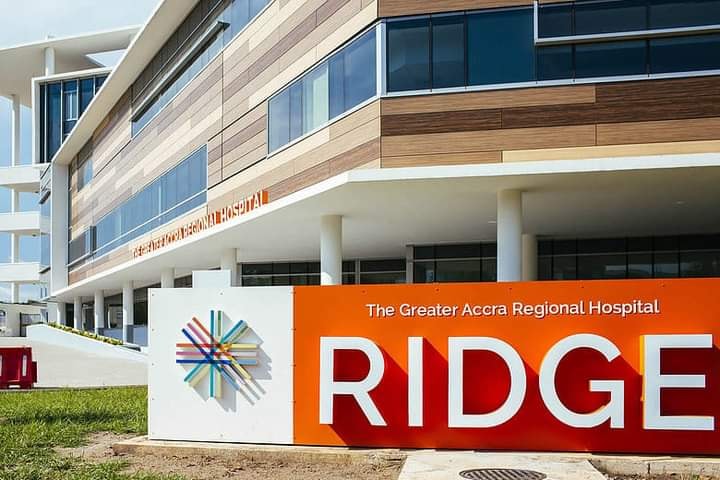
Recently, while reviewing my crisis communication notes from the University of Media, Arts and Communication, I was reminded of a key principle: a crisis can present opportunities. But this lesson felt hollow until I observed how a recent public drama unfolded.
The crisis? Ralph – yes, the same outspoken #FixtheCountry activist – stormed Ridge Hospital, phone in hand, and went live on social media alleging misconduct and neglect in the emergency ward. For those who know Ralph, this was not out of character.
He is the activist who famously broke into the controversial National Cathedral site, commands litterbugs to pick up trash, and once confronted a Member of Parliament in public. His voice is bold, his style confrontational, and his primary weapon? Social media.
This time, Ralph claimed patients were being ignored. Injured himself, he ranted in real time, demanding action. But what ensued was chaos. While some applauded his boldness, many condemned him for breaching patient privacy and creating tension in a place that should have been calm. Old comments attributed to him – like a shocking reference to Ghanaians as animals – resurfaced, fueling outrage.
Then came a twist: a nurse alleged Ralph’s intrusion led to assault, a stolen phone and missing cash. The Ghana Registered Nurses and Midwives Association (GRNMA) stepped in, and its General Secretary went on air angrily blasting Ralph – and even the Health Minister; for issuing a more neutral press statement, instigating an investigation, and shaking Ralph’s hand.
His language? Unfiltered and combative, with words like “foolish” and “nonsense” flying in local dialect. The Association issued a 48-hour ultimatum for Ralph’s arrest, even though the Health Minister would soon reveal that some arrests had been made. What would they do after the ultimatum elapsed? According to the General Secretary, they had contemplated shutting down the emergency ward in protest of the alleged assault and government inaction.
The situation spiralled. The General Secretary warned on live radio that journalists who spoke foolishly about nurses were being “marked” – a phrase in Ghanaian parlance that sounds like a threat.
Days later, an investigative report revealed inconsistencies: the alleged physical assault and dislocated shoulder were unsubstantiated.
Meanwhile, the nurse had already received a new phone and cash compensation from the Hospital. GRNMA’s credibility took a hit.
This, to me, is a textbook case of a crisis opportunity lost. Here’s why:
Four pportunities GRNMA missed
- Emphasize Protocols – They could have strongly explained why activists cannot disrupt hospital emergency spaces without compromising care. Instead, that message drowned in noise.
- Educate on Triage – A golden chance to teach citizens how emergency cases are prioritized. Missed.
- Clarify Patient & Staff Rights – They could have positioned themselves as champions for both patients and nurses, explaining legal rights and privacy issues. Silence.
- Provide Proper Complaint Channels – They could have introduced or highlighted formal mechanisms for reporting negligence, like the hotlines the Health Ministry later announced.
Handled strategically, this crisis could have enhanced GRNMA’s image as protecting of its members, professional, transparent, and patient-focused. Instead, threats, exaggerations, and emotional outbursts left their credibility in question; while Ralph, ironically, emerged looking vindicated.
Lesson: In crisis communication, truth and strategy trump drama. The GRNMA didn’t need to exaggerate or fight journalists to protect its members. They needed to communicate responsibly. This was a masterclass in how not to manage a crisis.
Next time, let’s hope they turn the storm into a spotlight, not a stain. Pen drops, softly!
About the author, Pious D. Serwonu, is a postgraduate student at the University of Media, Arts and Communication and a practicing Public Affairs Officer with a decade of experience in public relations. His research interests include crisis communication and corporate social responsibility. He is passionate about using communication to contribute to a better Ghana and a healthier globe.
DISCLAIMER: The Views, Comments, Opinions, Contributions and Statements made by Readers and Contributors on this platform do not necessarily represent the views or policy of Multimedia Group Limited.
DISCLAIMER: The Views, Comments, Opinions, Contributions and Statements made by Readers and Contributors on this platform do not necessarily represent the views or policy of Multimedia Group Limited.
Source: myjoyonline.com










